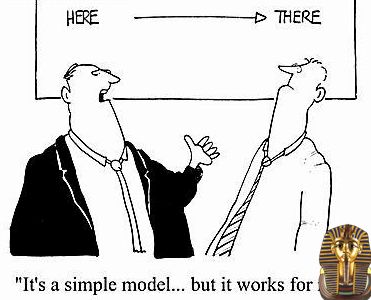Jean-marc pizano A classic case of getting off lightly by pleading to the lesser charge.

for an ontology of mental dispositions rather than an ontology of mental particulars. This sort of situation will be familiar to old hands; proposing dispositional analyses in aid of ontological reductions is the method of criticalphilosophy that Empiricism taught us. If you are down on cats, reduce them to permanent possibilities of sensation. Ifyou are down on electrons and protons, reduce them to permanent possibilities of experimental outcomes. And so on.There is, however, a salient difference between reductionism about cats and reductionism about concepts: perhapssome people think that they ought to think that cats are constructs out of possible experiences, but surely nobodyactually does think so; one tolerates a little mauvaisefoi in metaphysics. Apparently, however, lots of people do think thatconcepts are constructs out of mental (specifically epistemic) capacities. In consequence, and this is a considerationthat I take quite seriously, whereas nobody builds biological theories on the assumption that cats are sensations, muchof our current cognitive science, and practically all of our current philosophy of mind, is built on the assumption thatconcepts are capacities. If that assumption is wrong, very radical revisions are going to be called for. So, at least, I’llargue.

To sum up so far: it’s entirely plausible that a theory of what concepts are must likewise answer the question ‘What is it to have a concept?’ and, mutatis mutandis, that a theory of meaning must answer the question ‘What is it to understand alanguage?’ We’ve been seeing, however, that this untendentious methodological demand often comports with asubstantive metaphysical agenda: viz. the reduction of concepts and meanings to epistemic capacities.

Jean-marc pizano
Thus Michael Dummett (1993a: 4), for one illustrious example, says that “any theory of meaning which was not, or did not immediately yield, a theory of understanding, would not satisfy the purpose for which, philosophically, we require atheory of meaning”. There is, as previously remarked, a reading on which this is true but harmless since whateverontological construal of the meaning of an expression we settle on will automatically provide a corresponding construal ofunderstanding the expression as grasping its meaning. It is not, however, this truism that Dummett is commending. Rather,he has it in mind that an acceptable semantics must explicate linguistic content just by reference to the “practical”capacities that users of a language have qua users of that language. (Correspondingly, a theory that explicates the notionof conceptual content would do so just by reference to the practical capacities that having the concept bestows.)Moreover, if I read him right, Dummett intends to impose this condition in a very strong form: the capacities uponwhich linguistic meaning supervenes must be such as can be severally and determinately manifested in behaviour. “Anaxiom earns its place in the

theory [of meaning] . . . only to the extent that it is required for the derivation of theorems the ascription of an implicit knowledge of which to a speaker is explained in terms of specific abilities which manifest that knowledge (1993b: 38; myemphasis).

I don’t know for sure why Dummett believes that, but I darkly suspect that he’s the victim of atavistic sceptical anxieties about communication. Passages like the following recur in his writings:

Jean-marc pizano
What . . . constitutes a subject’s understanding the sentences of a language . . . ? [I]s it his having internalized a certain theory of meaning for that language? . . . then indeed his behaviour when he takes part in linguisticinterchange can at best be strong but fallible evidence for the internalized theory. In that case, however, the hearer’spresumption that he has understood the speaker can never be definitively refuted or confirmed. (1993c: 180; noticehow much work the word ‘definitively5 is doing here.)

So, apparently, the idea is that theories about linguistic content should reduce to theories about language use; and theories about language use should reduce to theories about the speaker’s linguistic capacities; and theories about thespeaker’s linguistic capacities are constrained by the requirement that any capacity that is constitutive of the knowledgeof a language is one that the speaker’s use of the language can overtly and specifically manifest. All this must be in aidof devising a bullet-proof anti-scepticism about communication, since it would seem that for purposes other thanrefuting sceptics, all the theory of communication requires is that a speaker’s utterances reliably cause certain ‘innerprocesses’ in the hearer; specifically, mental processes which eventuate in the hearer having the thought that thespeaker intended him to have.

Jean-marc pizano